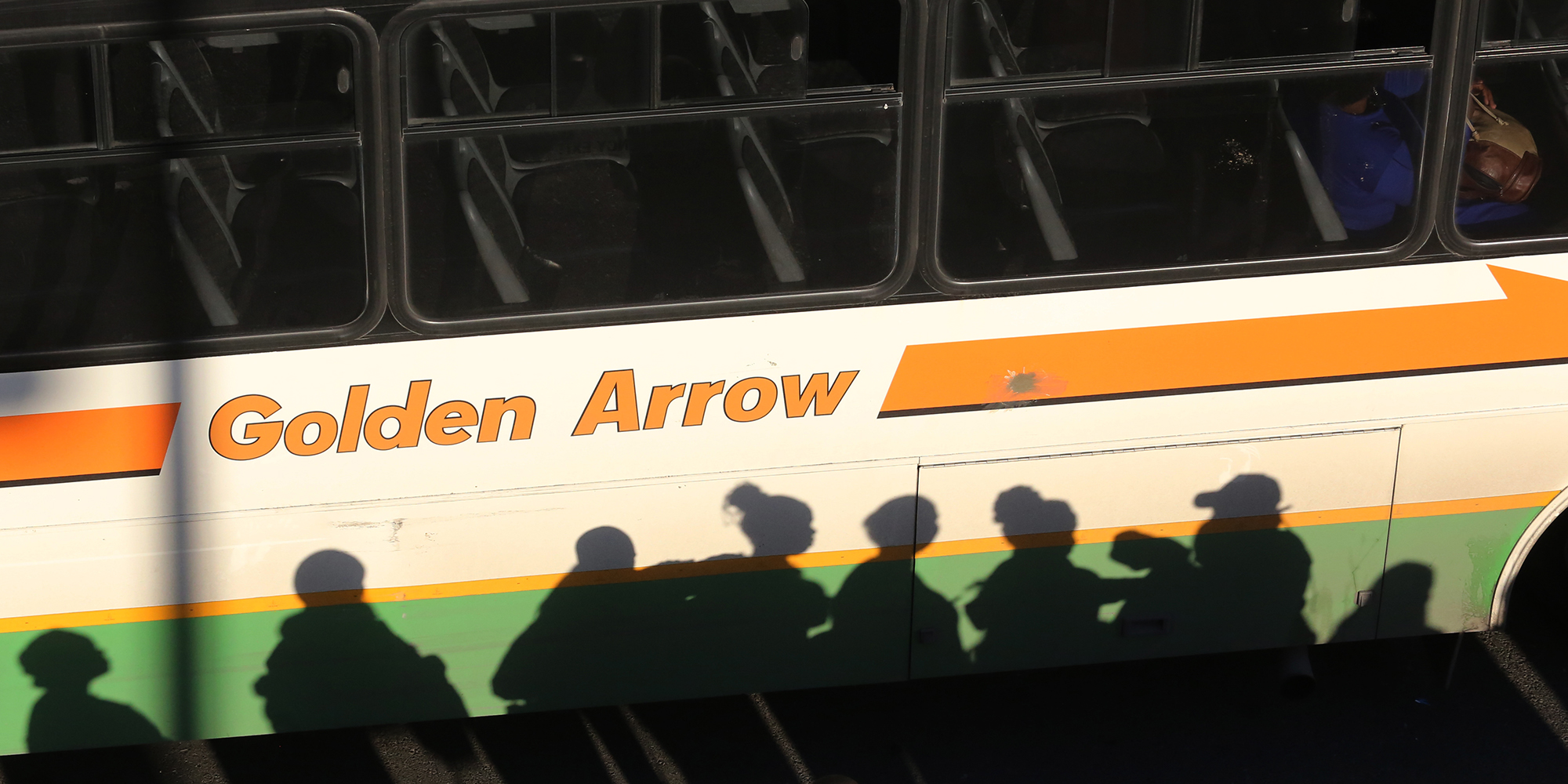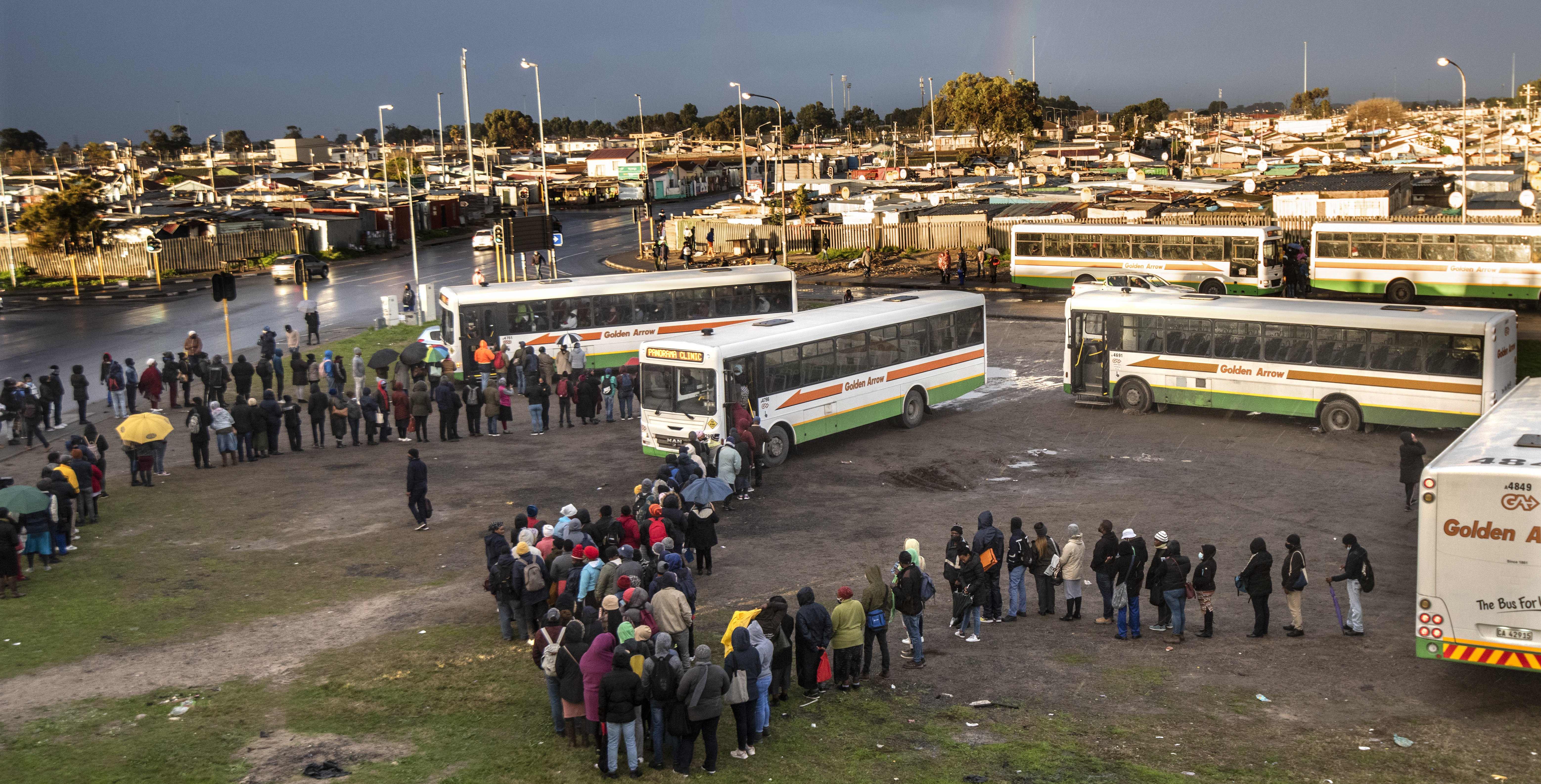Cape Town commuters in Cape Town will have to dig deeper into their pockets following the announcement of a fare increase by Golden Arrow Bus Services.
This comes days after the announcement of huge petrol and diesel price hikes in the country.
This is a third Golden Arrow fare increase in just 18 months: In March 2022, the company implemented an 8% increase, and in December of the same year there was a 6.95% hike.
Bus commuters can expect an average fare increase of 2.7% on 18 September 2023. The price for pensioners will not increase.
The Cape Town-based company cited rising operational input costs, such as fuel, and a legacy of implementing fare increases that are much lower than industry inflation which had placed significant strain on the company’s ability to provide the level of service passengers expected and deserved.
 Commuters catch a Golden Arrow Bus in Cape Town on 3 August 2023. (Photo: Shelley Christians)
Commuters catch a Golden Arrow Bus in Cape Town on 3 August 2023. (Photo: Shelley Christians)
“In addition to this, contractual rates paid by [the] government have also decreased in real terms,” explained Golden Arrow general manager Derick Meyer.
“We remain ever cognisant of the impact of fare increases on our passengers and therefore only implement increases when all cost-saving options have been exhausted and absorbing operational cost increases is no longer possible.”
Meyer did not say how much the government subsidy had decreased.
Daily Maverick has reported that the company received a subsidy of about R1.1-billion from the provincial government in the 2022/23 financial year. This funding is part of the Public Transport Operations Grant. MyCiTi gets R1.3-billion and Go-George R191-million from the grant.
MyCiti and Golden Arrow operate only in certain parts of Cape Town. With a subsidy of that size, commuters might expect to be shielded from the rising fuel and operational costs, and inflation.
MyCiTi shut down routes in 2022 following fuel price increases. The taxi industry did not, despite not being subsidised.
No taxi fare hike
The informal taxi industry, which transports most commuters in the province, has, through the South African National Taxi Council, announced that it will be not increasing fares just yet. Taxis are cheaper during off-peak hours compared to GABS.
The taxi industry does not get a government subsidy and government has been arguing that the reason for this is that the industry is not formalised.
“We have noted the increase of fuel, especially diesel,” said Santaco chairperson Mandla Hermanus. “We have not taken a decision on whether our associations will review their fares, but as a rule we do not normally adjust our prices in relation to the fluctuations in the price of fuel.
He added that they normally review their prices once a year, sometimes once every second year, but this varies from association to association.
“At the moment our prices will remain as they are, but we will monitor the situation… should there be further increases in the cost of fuel, then we might have to relook our pricing as well.”
Read more in Daily Maverick: Taxi strike – Some facts on how big the industry is, how much drivers make and the role in crime
Golden Arrow’s interim operating contract with the provincial government makes provision for adjustments to fares to offset operational cost increases.
To save money, Golden Arrow advises commuters to buy a GABS Gold Card and load weekly or monthly products instead of paying cash per trip.
“Weekly and monthly products are sold at a discount of up to 45%. GABS Gold Cards, a one-off purchase, are still priced at R35,” said Meyer.
 Passengers from Nyanga board Golden Arrow buses alongside the N2 at Borcherds Quarry, amid ongoing taxi violence in Cape Town, on 21 July 2021. (Photo: Gallo Images / Brenton Geach)
Passengers from Nyanga board Golden Arrow buses alongside the N2 at Borcherds Quarry, amid ongoing taxi violence in Cape Town, on 21 July 2021. (Photo: Gallo Images / Brenton Geach)
The alternatives
Looking at different modes of transport, Daily Maverick sourced available data to find the cheapest way to travel to the Cape Town CBD.
The graph below shows how much it costs to travel to the CBD during peak hours.
Off-peak hours are cheaper on both Golden Arrow and MyCiti but expensive on the minibus taxi because commuters have to pay for an extra taxi that will take them to the central point where taxis to the CBD are stationed, which is usually Site C in Khayelitsha. This extra taxi costs R15.
Rail is the cheapest. When it was operational, a return ticket from one of the furthest areas, Strand, to the CBD was R22. Now residents need to cough up R70 for a daily return trip by taxi.
Cape Town mayor Geordin Hill-Lewis has said the City’s lawyers are preparing to take legal steps to force the national government to hand over its rail network responsibilities to the country’s metros. DM




 Golden Arrow buses stopped alongside the N2 at Borchards Quarry ,entrance to Nyanga to transport workers who stood in long lines in the pouring rain from early morning to town and various other places amid ongoing taxi violence on July 21, 2021 in Cape Town, South Africa. It is reported that Golden Arrows Bus Services suspended its bus services in some areas after a Golden Arrow bus driver was shot in the mouth near Borcherd's Quarry as violence continued. (Photo by Gallo Images/Brenton Geach)
Golden Arrow buses stopped alongside the N2 at Borchards Quarry ,entrance to Nyanga to transport workers who stood in long lines in the pouring rain from early morning to town and various other places amid ongoing taxi violence on July 21, 2021 in Cape Town, South Africa. It is reported that Golden Arrows Bus Services suspended its bus services in some areas after a Golden Arrow bus driver was shot in the mouth near Borcherd's Quarry as violence continued. (Photo by Gallo Images/Brenton Geach) 